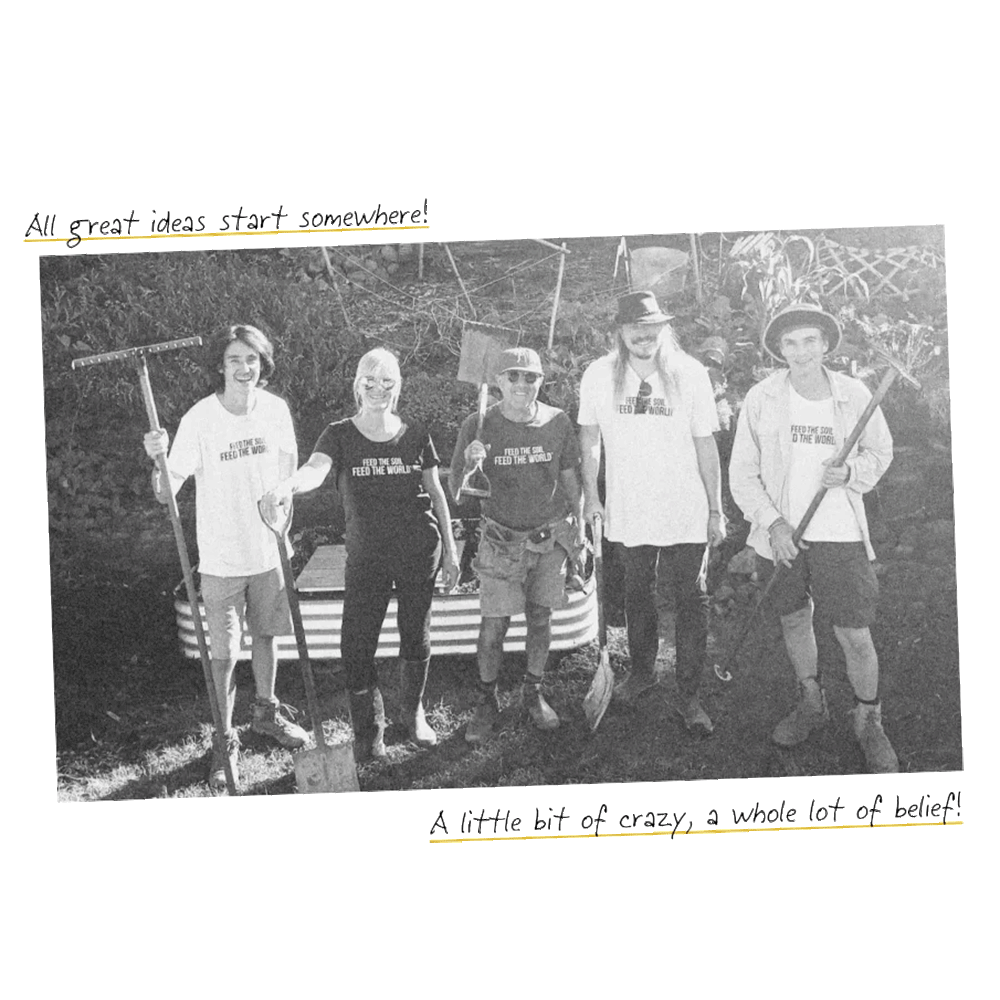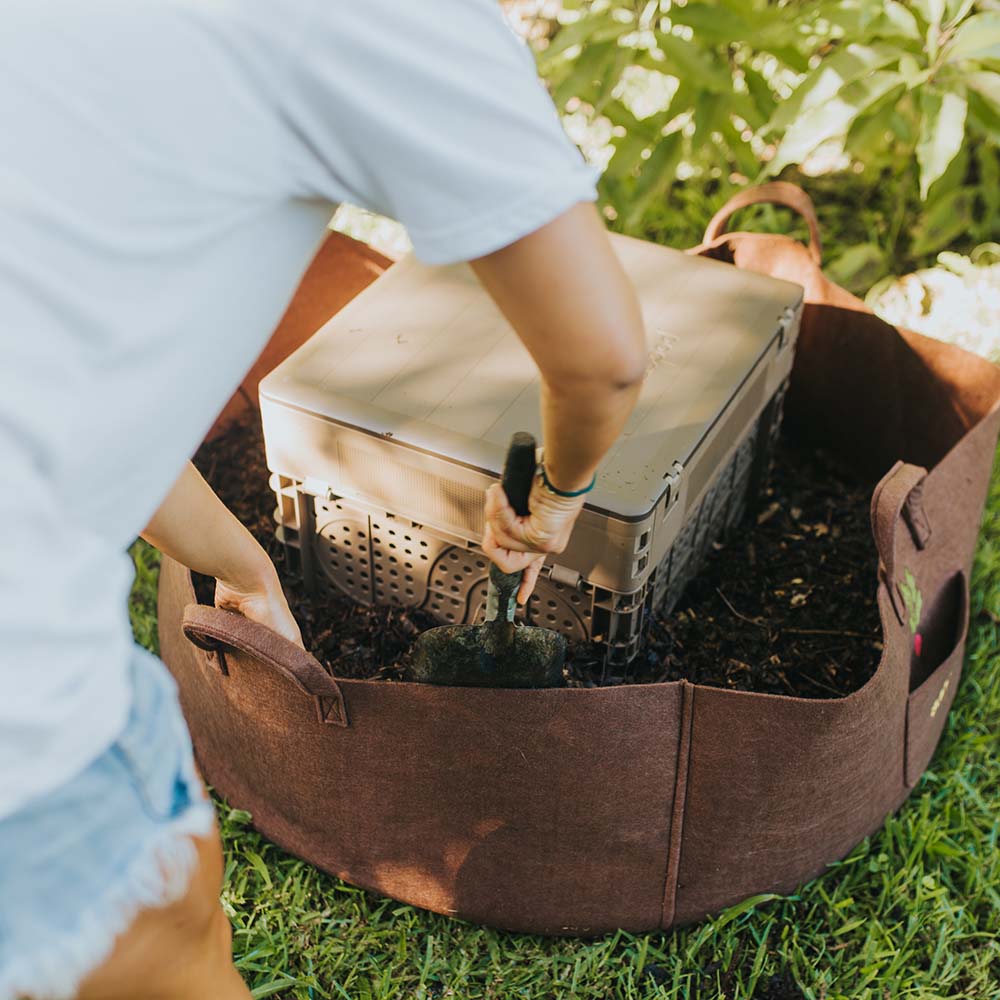Can You Compost Rice
In this article:
Rice in Compost
Gardeners around the world love their organic compost. It’s a nutrient-rich fertiliser that plants and vegetables really respond to, plus it has the added benefit of keeping food waste away from landfills!
But as composters know, not all food waste is created equal when it comes to the compost bin. Some require more care than others, some should be avoided with certain compost bins. A question that often comes up in gardening conversations is “Can I compost rice?”
Rice is one of the world’s most consumed foods, particularly in Asian countries but all over the world too. That means a lot of rice would get tossed out as food waste every year. So can this be composted and help reduce our carbon footprint every year? Let’s find out!

Can You Compost Rice?
Rice is an organic material that succumbs to the actions of microorganisms, worms, weather and moisture to decompose and break down. The answer then is yes, you can compost rice. In fact it's full of nutrients and minerals that positively contribute to the makeup of your compost. However, it’s not the most straightforward material to toss into your compost bin.
As with all organic materials, you need to do a bit of research before composting. Rice is no different, and there are a few things you need to know about rice in compost before you get started with it. There are precautions you need to take if you’re going to compost rice properly. We’re going to tell you exactly what they are!
Is Rice Considered a 'Green' or 'Brown'?
Organic materials are divided into two categories when it comes to composting, ‘greens’ and ‘browns’. Greens are nitrogen rich, while browns contain high levels of carbon. Greens will also generally be a bit moister than browns, which tend to be drier.
Most of the food waste that comes out of your kitchen is high in nitrogen and considered to be greens. This includes rice, so when it comes to composting rice is definitely considered to be green!
Rice actually uses a lot of nitrogen whilst it's being grown, and these high levels are passed on to the grain itself. Nitrogen is important in your compost because the microbes breaking down the organic matter feed on it in the decomposition process. Putting rice in your compost is a useful means of providing the necessary nutrients for composting to happen.
When you’re composting, it's important you have a balance of greens and browns. Browns are drier and include things like shredded cardboard, paper and dry leaves. They help give your compost structure, and should be added in a ratio of two or three parts for every part of green material added.

Should I Compost Raw or Cooked Rice?
It’s not uncommon for there to be leftover cooked rice at the end of a meal. Sometimes it sits in a tub in the fridge for a few days too, and ends up going in the bin instead of being eaten as leftovers!
Can you put that rice in your compost bin or worm farm? Yes you can, but there are a few precautions to take. We’re going to tell you exactly how to compost rice further on, but before we do, you need to know the following information.
Cooked rice is moist, so if you place it in large clumps into your compost bin it will create anaerobic conditions. This is because there isn’t enough oxygen in your compost, and it can lead to a smelly mess. It can also become a breeding ground for bacteria, which can infect your entire compost bin and even the plants you fertilise with the compost.
Raw rice is quite hard, which means it will take a long time to break down in your compost bin. It’s also very dry, which can upset the moisture balance of your compost. Depending on the conditions, the raw rice could even sprout!
Both raw and cooked rice can attract pests and rodents, especially if your cooked rice starts to give off odours.
That said, you can still compost both raw and cooked rice. You just need to know how to do it! We’re going to tell you how.
How to Compost Rice
First, you want to make sure your rice isn’t tainted with any spicy or fatty sauces. These won’t be appreciated in your compost bin, particularly if you use a vermicomposting system. Give the leftover rice a rinse before placing it in.
With raw rice, grinding it up before you put it in the bin will help speed up the decomposition process. The more surface area you present in your compost, the faster the process will be.
Cooked rice is a very moist green composting material. You need to make sure you have plenty of browns in there to help keep things dry and prevent it from going anaerobic. Two or three parts brown to one part green is a formula most people will go by, but you can adjust this as you go if you find it is too moist or dry.
If you have a traditional or a hot compost pile, then dig the rice into the centre of the pile and bury it a bit. The heat in the centre will help kill any bacteria, plus it will be less accessible to rodents and pests.
If you have a worm farm composting system, you’ll be happy to know your worms love eating cooked rice. They won’t eat uncooked rice though, that would just be broken down very slowly by the microbes.
We recommend adding cooked rice sparingly to your worm farm, don’t give them more than they can handle. Small amounts every couple of days, mixed in and aerated, is perfect.
Turning and aerating your compost is essential no matter what kind of system you use. It prevents clumping of the rice and spreads moisture through the pile. The oxygen it infuses also allows the microbes to thrive and do their work effectively.
Mistakes to Avoid When Composting Rice
Here are a few things to avoid when composting rice::
- Don’t add too much rice in the compost bin. Too much rice can overload your compost system, especially if it's very moist. Add small amounts at a time instead.
- Don’t compost rice with other fats. Rice is often served with fatty meats. Ensure you have separated these from the rice you add to your compost pile.
- Keep an eye out for spices on your leftover rice. Give your rice a rinse before placing it into the bin as worms and microbes aren’t partial to spices.
- Make sure you have the right balance of greens and browns. This helps balance moisture levels and gives your compost heap structure.
- Don’t forget to aerate or turn your compost. This is essential to oxygenate the compost and prevent the rice from clumping.
- Keep pests and rodents away. Attracting pests and rodents is a quick way to annoy your neighbours. We’re about to present you with a pest-resistant method of composting rice!
Compost Rice with Subpod
Subpod is a vermicomposting system, a worm farm that sits semi-submerged in your garden where it creates nutritious ‘black gold’ compost. Here’s the thing about Subpod - it’s a great option for composting cooked rice!
For a start, worms love rice. They eat through it efficiently and convert it to worm castings, the foundation of the compost produced. A Subpod is going to be faster than a traditional compost pile or bin when you want to turn your leftover rice into an organic fertiliser.
By nature of it’s robust design, Subpod is both smell and pest resistant. It’s an aerobic composting system, so you don’t end up with a smelly anaerobic situation that attracts unwanted visitors! If they do stumble across your Subpod, rodents have a hard time getting into the compost bin and will wander off to find easier pickings.
Subpod is a stylish addition to any outdoor space. Thanks to our range of bundles, it can be used in small areas like a balcony or courtyard too! What we love about it is that when it sits semi-submerged in your backyard, the lid protruding above the surface doubles up as a garden seat! The best seat in the house.





